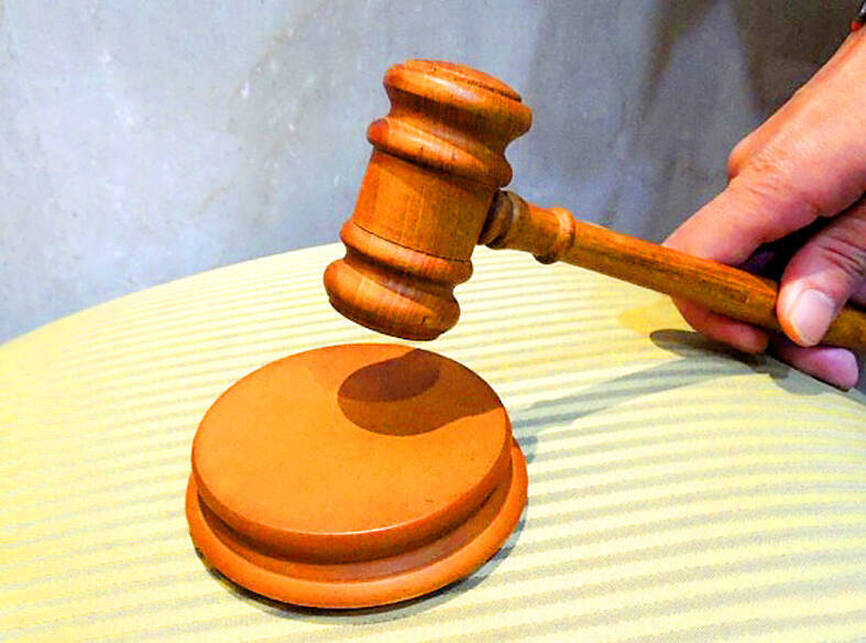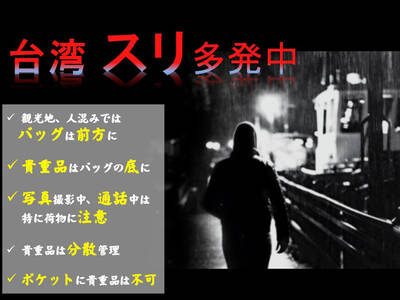Penalties should be increased and administrative measures adopted before criminal proceedings to address Chinese infiltration cases, an academic said on Saturday.
Concerns have mounted over the past few years over what many see as disproportionately lenient sentences for people engaged in espionage on behalf of Beijing.
“This is not merely a judicial matter, but one that requires collective efforts by the judicial, legislative and executive branches,” said Lo Cheng-chung (羅承宗), a professor at the National Kaohsiung University of Science and Technology’s Graduate Institute of Science and Technology Law.

Photo: Taipei Times
Lo said the government and the judiciary often misunderstand each other.
For example, administrative authorities often view cases in which military personnel receive funding from China as serious crimes that should warrant heavy punishment, he said.
However, judges must sentence strictly based on the facts and the law, and when evidence is insufficient, rulings tend to fall on the lenient side, he added.
Given that existing laws prescribe maximum penalties without a minimum threshold, many offenders have received light sentences — sometimes as little as three months in prison, often commutable to a fine, Lo said.
In such cases, the legislature should bear responsibility for creating penalties with both a ceiling and a floor, he said.
Anti-espionage statutes should be revised in line with other criminal laws, such as the Anti-Corruption Act (貪汙治罪條例), which mandates a minimum prison term of several years and does not allow fines in lieu of jail time, he added.
He also urged the executive and judicial branches to stop shifting blame, adding that while prosecutors often struggle to provide sufficient evidence, judges are equally constrained to deliver lighter sentences when the evidence is lacking.
The first priority is to establish a penalty floor through legislation or amendments to existing laws, Lo said, adding that there would be little public opposition to imposing a minimum prison term — such as one to three years — for treason.
He further called for revising the legal elements of espionage-related offenses to improve the admissibility of evidence and give judges a clearer basis for convicting defendants of treason.
It is equally important to raise judges’ awareness of national security issues, Lo said, citing the case of Fingermedia (指傳媒), a China-backed media outlet that disseminated falsified polling data ahead of last year’s presidential election.
In the first trial, the presiding judge considered Fingermedia’s connections with those at the top of the Chinese-language newspaper Fujian Daily to be “insufficient” as evidence of the company’s link with the Chinese government, although the newspaper is affiliated directly with the Fujian Provincial Committee of the Chinese Communist Party, Lo said.
“This reflected a lack of understanding of China’s party-state system and the inextricable link between the government and its people, which led to a flawed judgement,” he said.
National security literacy should therefore be incorporated into judicial education to prevent judges from assessing China under the same legal framework as regular constitutional states and imposing inappropriate sentences, he added.
Lo also said that administrative measures should be taken before criminal proceedings, citing the Mainland Affairs Council’s handling of controversial remarks by pro-China entertainers as an example.
Executive agencies can launch investigations and impose sanctions under the Administrative Procedure Act (行政程序法) prior to criminal prosecution, he said.
If the penalized party disagrees, they retain the right to seek an administrative remedy or appeal through the courts, he added.
Swift administrative action can counter infiltration and espionage more directly and effectively, particularly since criminal trials are often lengthy, he said.

The Japan-Taiwan Exchange Association has cautioned Japanese travelers to be vigilant against pickpockets at several popular tourist spots in Taiwan, including Taipei’s night markets, the Yongkang Street area, Zhongshan MRT Station, and Jiufen (九份) in New Taipei City. The advisory, titled “Recent Development of Concerns,” was posted on the association’s Web site under its safety and emergency report section. It urges travelers to keep backpacks fully zipped and carried in front, with valuables placed at the bottom of the bag. Visitors are advised to be especially mindful of their belongings when taking photos or speaking on the phone, avoid storing wallets and

ENDORSING TAIWAN: Honduran presidential candidate Nasry Afura said that Honduras was ‘100 times better off’ when it was allied with Taipei The Ministry of Foreign Affairs yesterday said it would explore the possibility of restoring diplomatic relations with Honduras based on the principle of maintaining national interests and dignity. The ministry made the remarks in response to reporters’ questions regarding an article titled: “Will Taiwan Regain a Diplomatic Ally?” published in The Diplomat on Saturday. The article said Honduras’ presidential election in November could offer Taiwan the chance to regain an ally, as multiple candidates have promoted re-establishing diplomatic relations with Taiwan. Honduras severed diplomatic ties with Taiwan in March 2023 in favor of Beijing, but since switching its diplomatic recognition,

A fourth public debate was held today about restarting the recently decommissioned Ma-anshan Nuclear Power Plant, ahead of a referendum on the controversial issue to be held in less than two weeks. A referendum on Aug. 23 is to ask voters if they agree that “the Ma-anshan Nuclear Power Plant should continue operations upon approval by the competent authority and confirmation that there are no safety concerns.” Anyone over 18 years of age can vote in the referendum. The vote comes just three months after its final reactor shut down, officially making Taiwan nuclear-free. Taiwan People’s Party Chairman Huang Kuo-chang (黃國昌) represented

Scoot announced yesterday that starting in October, it would increase flights between Taipei and Japan’s Narita airport and Hokkaido, and between Singapore and Taipei. The low-cost airline, a subsidiary of Singapore Airlines, also said it would launch flights to Chiang Rai in Thailand, Okinawa and Tokyo’s Haneda airport between December and March next year. Flights between Singapore and Chiang Rai would begin on Jan. 1, with five flights per week operated by an Embraer E190-E2 aircraft, Scoot said. Flights between Singapore and Okinawa would begin on Dec. 15, with three flights per week operated by Airbus A320 aircraft, the airline said. Services between Singapore